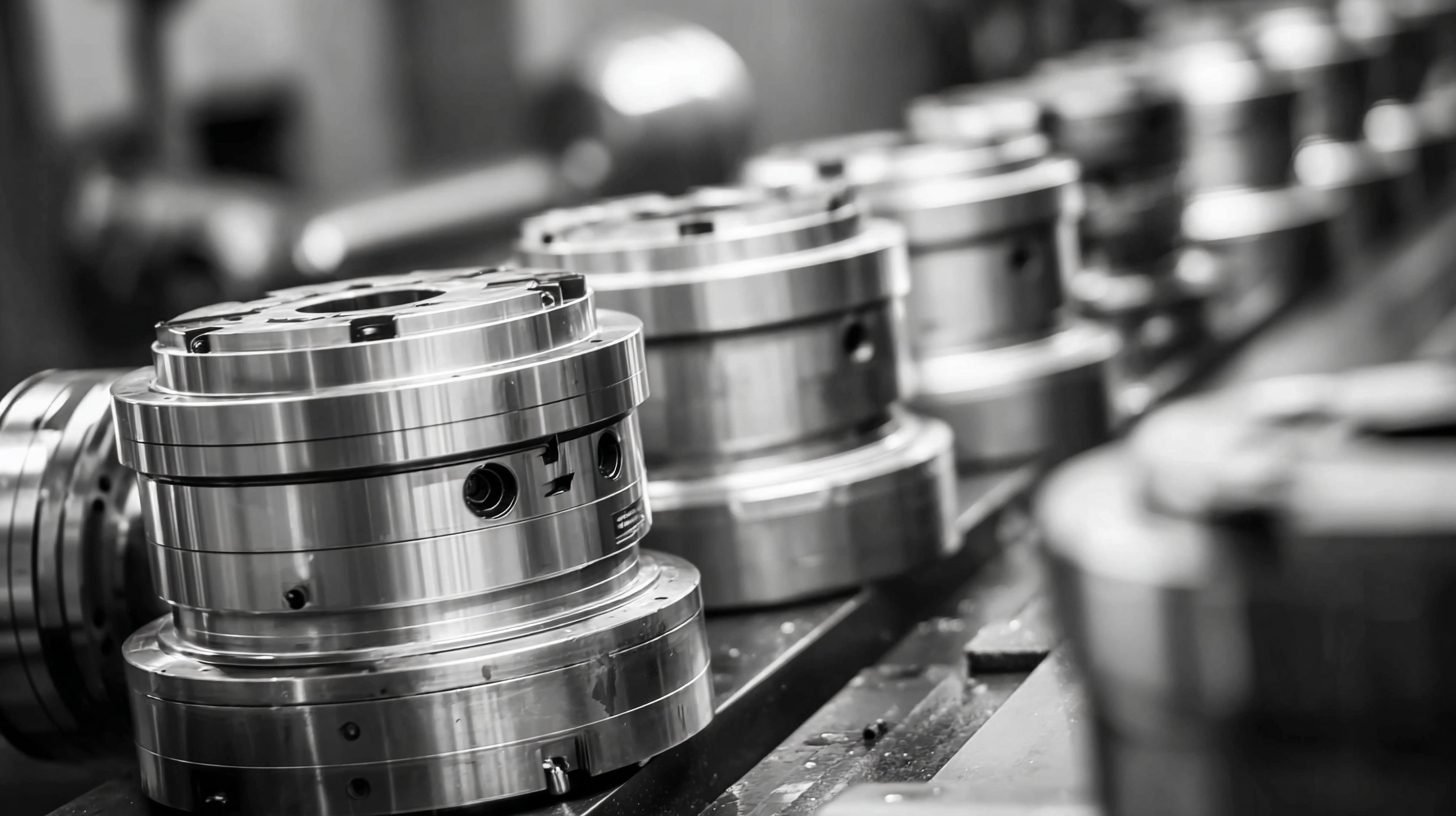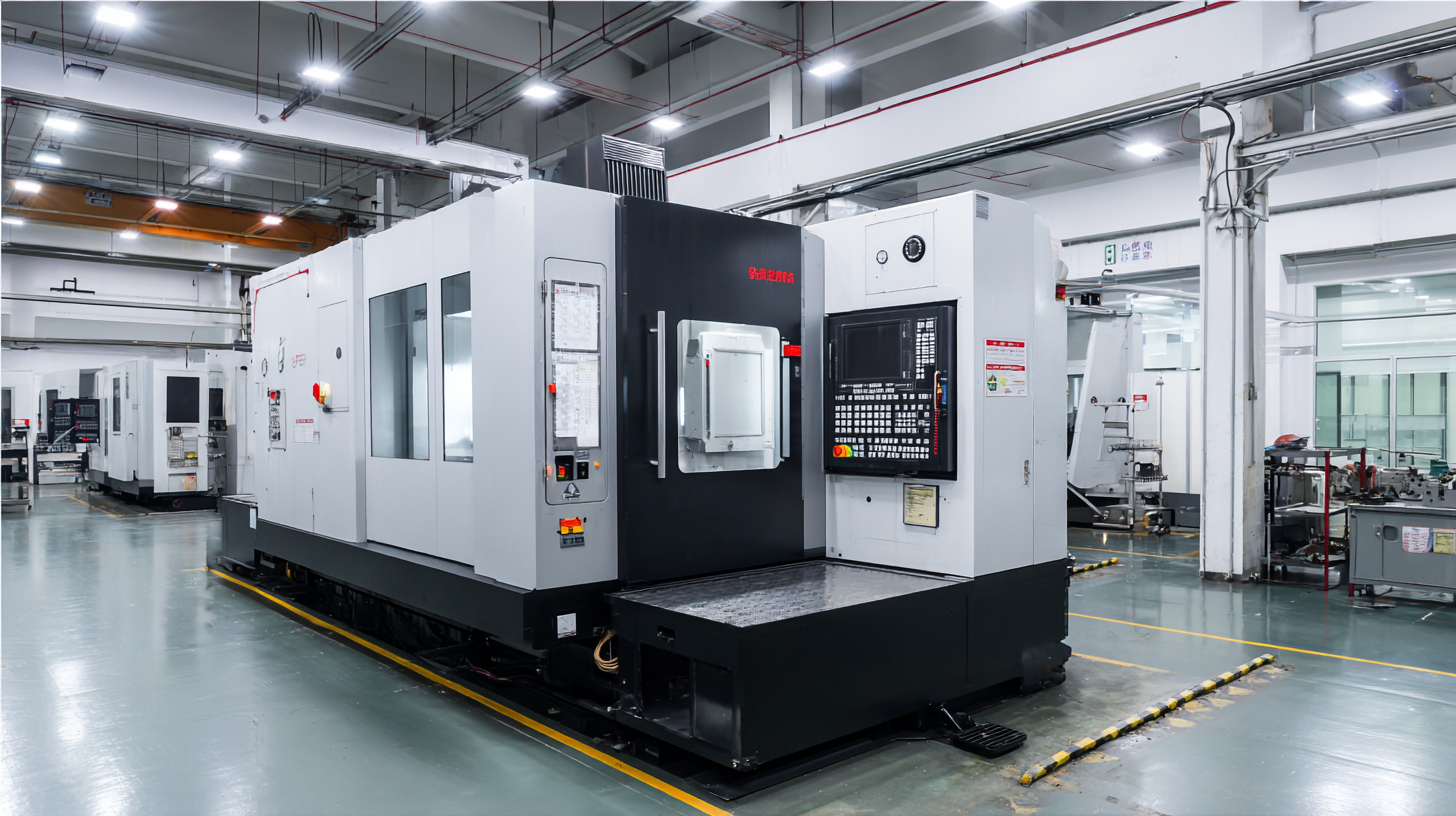In the rapidly evolving landscape of manufacturing, precision CNC (Computer Numerical Control) machining has emerged as a cornerstone of advanced production capabilities, enabling companies to achieve exceptional accuracy and efficiency. According to a report by MarketsandMarkets, the global CNC machining market is projected to reach USD 100.3 billion by 2025, reflecting a compound annual growth rate (CAGR) of 6.4% from 2020 to 2025. This growth is largely driven by the rising demand for precision parts across various industries, including aerospace, automotive, and medical technology. Partnering with China for precision CNC manufacturing solutions presents a unique opportunity for businesses looking to leverage cutting-edge technologies and cost-effective production capabilities. With a robust ecosystem of experienced manufacturers and a commitment to innovation, China is well-positioned to lead the charge in delivering high-quality precision CNC solutions that meet the diverse needs of the global market.

In the rapidly evolving landscape of manufacturing, outsourcing precision CNC (Computer Numerical Control) production to China offers substantial financial advantages. A report from Deloitte indicates that manufacturers can save up to 30% on production costs by leveraging China's lower labor rates and established supply chains. This strategic move not only reduces expenses but also enhances the scalability of operations, allowing companies to respond swiftly to market demands.
Moreover, data from Statista highlights that China's CNC machining market is projected to grow to $820 billion by 2025, driven by increasing automation and technological advancements. This growth facilitates easier access to state-of-the-art CNC technology and skilled labor, ensuring that manufacturers receive high-quality products. By partnering with Chinese manufacturers, businesses can also benefit from faster turnaround times and improved efficiency, all while significantly cutting production expenses and reallocating resources towards innovation and growth.
As the CNC (Computer Numerical Control) machine market continues to grow, the integration of advanced technology is proving to be a game-changer in enhancing CNC precision. According to industry reports, the global CNC machine market is projected to expand from $101.22 billion in 2025 to an impressive $195.59 billion by 2032, reflecting a robust compound annual growth rate (CAGR) of 9.9%. This remarkable growth emphasizes the increasing reliance on precision engineering and the critical role that CNC manufacturing solutions play in various sectors.
Advanced technology in CNC manufacturing not only improves the accuracy of machined parts but also significantly reduces production times and operational costs. The adoption of innovations such as AI-driven automation, IoT-enabled machines, and enhanced software algorithms is reshaping the landscape of precision manufacturing. These technologies facilitate real-time monitoring and adjustments, ensuring higher quality output with minimal waste. By partnering with industry leaders in China, businesses can leverage these advancements, gaining access to the best precision CNC manufacturing solutions that meet the demands of a rapidly evolving market.

When considering CNC manufacturing solutions, a critical factor to assess is labor costs, especially in comparisons between China and other global markets. According to a recent market research study, China continues to hold a competitive edge due to its lower labor costs and established manufacturing infrastructure. This advantage allows companies to significantly reduce production expenses while maintaining high standards of precision and quality in their CNC machined components.
Moreover, the global machine tools market is experiencing robust growth, with projections indicating an increase from USD 134.96 billion in 2023 to USD 169.47 billion in the coming years. This growth is driven by advancements in technology and rising demand for precision machinery across various industries. As companies explore options for CNC production, the cost-effectiveness of Chinese manufacturing becomes even more appealing. With the complexities of reshoring manufacturing, as discussed highlighting the challenges faced by certain brands in relocating production to higher-cost environments, China's adeptness in CNC manufacturing remains a vital consideration for businesses looking to optimize their operations and invest in the future.
In recent years, China's CNC manufacturing industry has made significant strides in quality assurance, adhering to stringent industry standards and metrics. Quality control measures in Chinese facilities are meticulously designed to ensure that each component meets global specifications. The emphasis on precision and consistency is evident as firms leverage advanced technologies and rigorous inspection processes. This dedication to quality is particularly crucial in sectors like watch manufacturing, where even the smallest detail can impact overall performance and customer satisfaction.

Moreover, China's evolving landscape in advanced manufacturing reflects the nation's enhanced innovation capabilities. As universities and domestic companies focus on research and development, the integration of cutting-edge technologies into CNC processes becomes a hallmark of the industry. This shift not only boosts productivity but also enhances the ability to meet unique client specifications while maintaining high standards of quality. By partnering with Chinese manufacturers, businesses can capitalize on this commitment to excellence, ensuring they receive precision-engineered solutions that bolster their competitive edge in the global marketplace.
As industries continue to evolve, many companies seek precision CNC manufacturing solutions that can enhance productivity and reduce costs. Collaborating with Chinese CNC manufacturers has become increasingly popular due to their ability to deliver high-quality products at competitive prices. Various case studies highlight the successes achieved by businesses that have forged partnerships with these manufacturers across diverse sectors.
One notable example comes from the automotive industry, where a leading automobile manufacturer collaborated with a Chinese CNC provider to produce intricate engine components. By leveraging advanced machining technologies and efficient production processes, the partnership not only met the stringent quality standards but also significantly reduced lead times. This allowed the manufacturer to streamline their supply chain and respond quickly to market demands.
Another compelling case can be found in the aerospace sector, where a major aircraft producer worked alongside a Chinese CNC company to develop lightweight structural parts. The precision and expertise offered by the Chinese manufacturer enabled the producer to achieve weight savings without compromising strength. This collaboration not only contributed to improved fuel efficiency but also positioned the aircraft producer as a leader in innovative aviation solutions, showcasing the transformative impact of strategic partnerships in CNC manufacturing.
